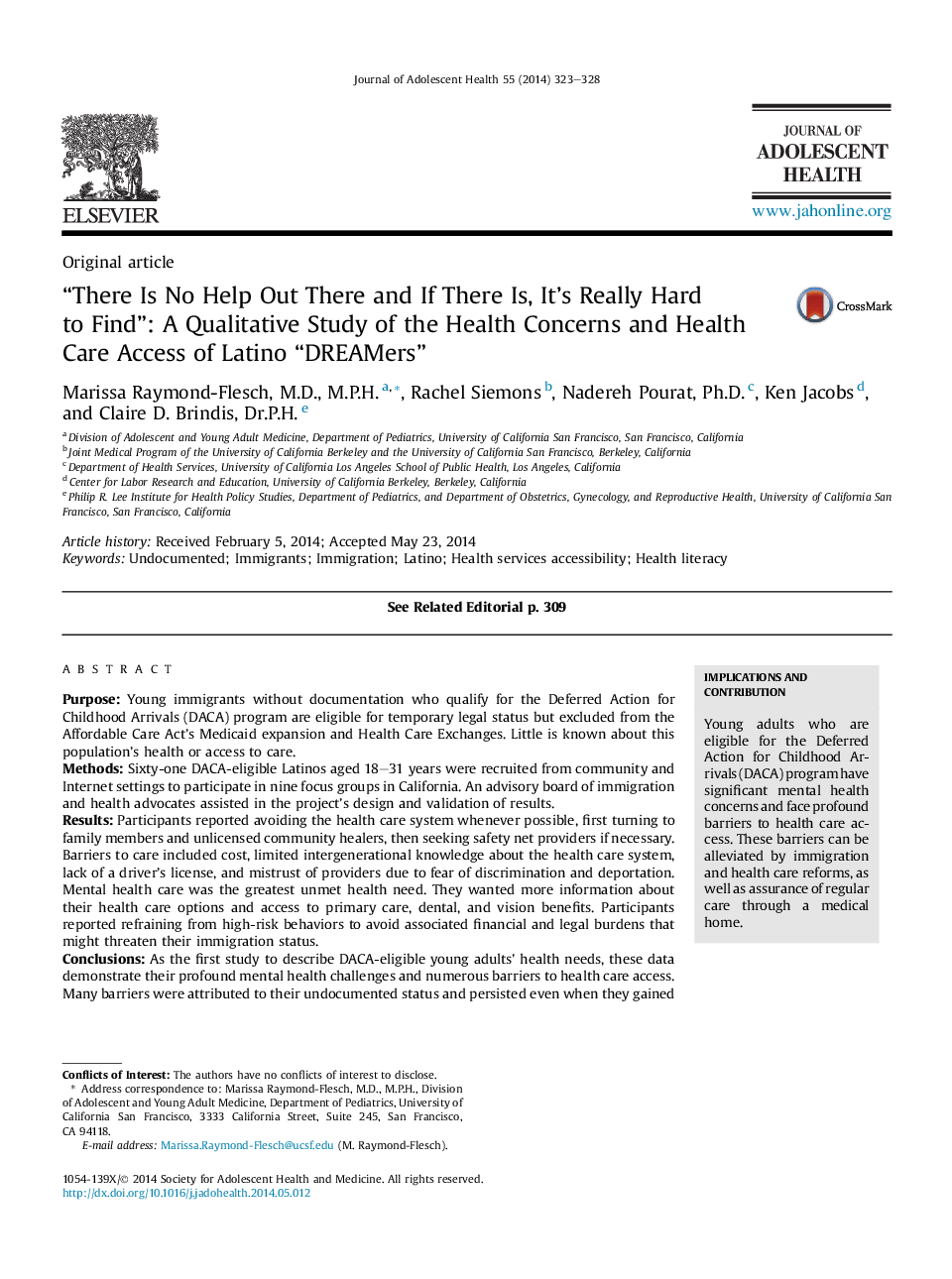| Article ID | Journal | Published Year | Pages | File Type |
|---|---|---|---|---|
| 1078447 | Journal of Adolescent Health | 2014 | 6 Pages |
PurposeYoung immigrants without documentation who qualify for the Deferred Action for Childhood Arrivals (DACA) program are eligible for temporary legal status but excluded from the Affordable Care Act's Medicaid expansion and Health Care Exchanges. Little is known about this population's health or access to care.MethodsSixty-one DACA-eligible Latinos aged 18–31 years were recruited from community and Internet settings to participate in nine focus groups in California. An advisory board of immigration and health advocates assisted in the project's design and validation of results.ResultsParticipants reported avoiding the health care system whenever possible, first turning to family members and unlicensed community healers, then seeking safety net providers if necessary. Barriers to care included cost, limited intergenerational knowledge about the health care system, lack of a driver's license, and mistrust of providers due to fear of discrimination and deportation. Mental health care was the greatest unmet health need. They wanted more information about their health care options and access to primary care, dental, and vision benefits. Participants reported refraining from high-risk behaviors to avoid associated financial and legal burdens that might threaten their immigration status.ConclusionsAs the first study to describe DACA-eligible young adults' health needs, these data demonstrate their profound mental health challenges and numerous barriers to health care access. Many barriers were attributed to their undocumented status and persisted even when they gained temporary legal status. This work provides a foundation for evidence-based policy changes to address the health needs of this and other undocumented populations.
